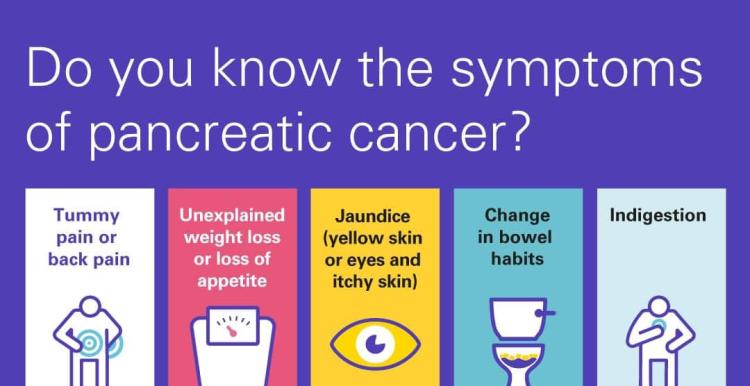Pancreatic Cancer Awareness Month

Pancreatic cancer develops when cells in the pancreas grow out of control, forming a lump. You might hear this called a tumour or mass.
There are different types of pancreatic cancer. Pancreatic ductal adenocarcinoma is the most common type. Neuroendocrine cancers are less common – they behave differently and are treated differently.
Common symptoms:
- Indigestion
- Tummy pain or back pain
- Changes to your poo
- Weight loss
- Jaundice
More on symptoms from Pancreatic Cancer UK
Pancreatic cancer affects men and women in the same way. You may not have all the symptoms listed here, as the symptoms can vary for each person.
What are the known risk factors for pancreatic cancer?
There is good evidence that age, smoking, being overweight or obese, a family history of pancreatic cancer, pancreatitis, and diabetes may increase your risk of pancreatic cancer.
Some evidence has suggested that the following may also increase your risk:
Pancreatic Cancer UK Support Line
A free Support Line staffed by specialist nurses. It is open Mondays, Tuesdays, Thursdays and Fridays between 9am and 4pm, and Wednesdays between 10am and 4pm.
Call 0808 801 0707, or contact a nurse via email.
Widnes and Runcorn Cancer Support Centre
Local support for anyone affected by cancer in the Halton area.
Find out more about the support and services offered locally.


